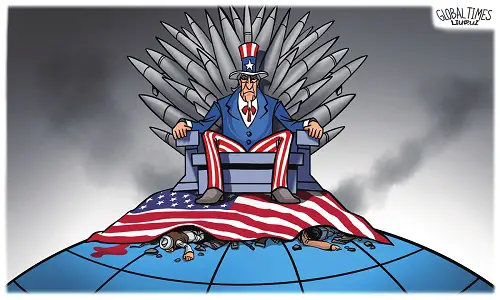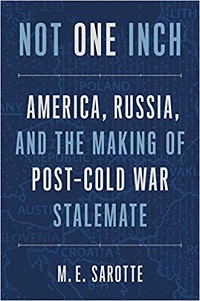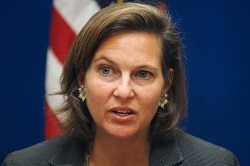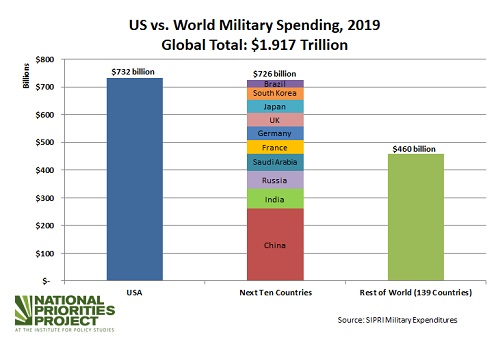|
TRANSLATE THIS ARTICLE
Integral World: Exploring Theories of Everything
An independent forum for a critical discussion of the integral philosophy of Ken Wilber
  Jeff Meyerhoff, M.A., L.S.W. is the author of "Bald Ambition: A Critique of Ken Wilber's Theory of Everything" and other essays on integral theory. He majored in economics and sociology and has studied philosophy, psychology, politics and spirituality. He's been employed as a social worker for the last 25 years. His weekly radio show, "The Ruminator," is archived at www.wmfo.org. His blog is www.philosophyautobiography.blogspot.com and his email is [email protected]. Jeff Meyerhoff, M.A., L.S.W. is the author of "Bald Ambition: A Critique of Ken Wilber's Theory of Everything" and other essays on integral theory. He majored in economics and sociology and has studied philosophy, psychology, politics and spirituality. He's been employed as a social worker for the last 25 years. His weekly radio show, "The Ruminator," is archived at www.wmfo.org. His blog is www.philosophyautobiography.blogspot.com and his email is [email protected]. A Context for SurvivalThe US, Russia and UkraineJeff Meyerhoff
My argument is that the current Ukraine crisis needs to be understood within ever enlarging contexts that shape our understanding within our overarching goal.
I present a holistic understanding of the current Ukraine crisis using a Pragmatic integration of events. This understanding differs from the dominant view in US foreign policy circles, the US government and media, and the US public about the war. It is derived from and defended by using the work of longtime foreign policy scholars, diplomats, and administrators. My argument is that the current Ukraine crisis needs to be understood within ever enlarging contexts that shape our understanding within our overarching goal. I define three nested contexts. First is the local war caused by the Russian invasion of Ukraine. Second is the larger context of the conflict between the US and Russia that contextualizes and overlaps the local war between Russia and Ukraine. And third, the larger US-Russian conflict is contextualized within our widest and gravest problem: the climate crisis.[1] My proffered solution to the climate crisis requires fundamentally altering individual economies and the world economy. This will require an international cooperative effort. That means the nations of the world will need to set up and use international institutions in which planning, rules, and reorganization of economic and political institutions is done.[2] This internationalist vision is of a more integrated multipolar world where the nations of the world can face and coordinate a response to the climate crisis that changes the economic—the material—rules of the game. I realize this is quite unlikely to happen and we'll probably destroy, or severely damage, ourselves and tens of thousands of other species with climate destruction. But it's important to know what we need to do in order to know what to do and how to do it even if the likelihood of its happening is slim. So the largest problematic context—potential species' suicide—informs the smaller contexts of US-Russia relations, which informs the still smaller context of the Russian invasion of Ukraine. The world community needs a world-centric solution to this local conflict within the larger context of US-Russian relations, that can move us towards mitigating the climate crisis that the overwhelming majority of climate scientists say we must start solving now. Since the IPPC gave their first warnings in 1990, the world response has moved in the wrong direction.[3] Since then the IPCC's warnings have become more urgent and conclusive yet the world community continues increasing, rather than decreasing, human descent into greater ecological catastrophes with the possibility, in decades to come, of human species destruction. Piecemeal efforts of appeals to individuals to change behavior, technological innovation and market solutions will not be enough mitigation of the dire consequences.[4] What we need is a coordinated international solution where the nations of the world work together through existing and new international institutions that can collectively alter the fundamentals of the political-economy. Competitive and hostile conflicts between dominant nation-states move us away from the goal of avoiding increasingly severe climate catastrophes and possible human extinction. A Pragmatic integrationPragmatism is a holistic and progressive philosophical approach that focuses on solving practical problems relevant to living. “Relevant to living” distinguishes Pragmatism's chosen problems from the common abstract problems that conventional philosophy tries to answer. Pragmatism with a capital “P” needs to be distinguished from small “p” “pragmatism.” Small “p” “pragmatism” or “pragmatic” usually means not interested in theory and focused narrowly on solving the problem at hand. Capital “P” Pragmatism refers to the ideas of American Pragmatist thinkers like John Dewey and William James. It differs from small “p” pragmatism in that it is concerned with large-scale, holistic, and progressive perspectives not the narrowly defined problems we try to solve when being “pragmatic”. Being philosophically minded, Pragmatism includes in its analyses and actions the largest relevant contexts of the problems to be solved.[5] A Pragmatic integration starts with the problem it intends to solve. The character of the problem to be solved informs the methods, conceptions, and solutions we need to create a solution. Conventional philosophy is most typically thought of as a means to find philosophical truth, or the accurate description of reality as reality really is. In contrast, Pragmatism's truths and objectivity are relative to the problems and contexts relevant to solving life's problems. The Pragmatic understanding of the situation to be addressed is not claimed to be an objective description only, but the “objective” description that agrees with the facts and that facilitates action that can solve the chosen problem of the Pragmatic analysis. I refer to my version as a “narrative” or “story.” Being a story means it must use the form of a story. To be a story there must be a value-laden goal that organizes the narrative. One cannot tell a story without a value-judgment or a view of what is good and bad.[6] This is why a Pragmatic rendering of what is, and what we need to do, necessitates choosing the goal we should strive for. Here, that goal is international coordination for the good of survival. Moral and Immoral Foreign PolicyThe local war caused by the Russian invasion of Ukraine is similar to past Russian, US and other invasions of sovereign nations. I condemn these invasions as a violation of international law and morality. It is this local war that is the near-exclusive focus of the US government, media and public. But there is also another war occurring simultaneously and animating the local Russian-Ukraine war. This larger geo-strategic “war” is between the US and Russia. It creates a larger determining context to the local war and is fought, in part, through the local war. Despite the prevailing view of the US government, mainstream media, and public. the local war between Russia and Ukraine is similar to invasions and occupations that more powerful nations do to less powerful nations. Whether it's the US invasion of Iraq, China's invasion of Tibet,[7] Morocco's invasion of Western Sahara, or the Russian invasion of Ukraine, they all can be condemned as violations of international law, although typically the invading dominant nation only condemns its chosen enemy's invasions, while claiming its own as justified. In the broader war between the US and Russia a variety of positions have been struck. Frank Visser described those positions in a recent paper.[8] The dominant and operative US foreign policy, at least since 1991 and the collapse of the Soviet Union, has been a combination of the neoconservative and the liberal humanitarian interventionist views. Both contend there is a moral necessity for the US to use military force and economic sanctions to alter other nations political systems. I contend that both of these views do not explain the facts and, more importantly, lead us away from the species-saving solutions that are necessary for a livable life on the planet. These solutions that emphasize military threats and interventions, and economic sanctions sow division and destruction as evidenced by the disastrous US invasions of Afghanistan, Iraq and Libya. These conflict-provoking actions are the opposite what we need to have any hope of the international political-economic coordination necessary to save ourselves and the other species humans are destroying. 
My narrative of the broader US-Russia war uses the scholarship of scores of US foreign policy scholars and diplomats; these include a who's who of international relations scholars and policy makers.[9] In the final section of this essay I quote a sampling of these experts' views. These experts include: the architect of US-Soviet Cold War relations, George Kennan; former U.S. Ambassador to the Soviet Union, Jack Matlock; and the former US Ambassador to the UN, Daniel Moynihan; as well as prominent others. In addition, I use the best documented study of the post-Cold War struggle over NATO expansion in the 1990s between the US, Russia and Europe by M.E. Sarotte, Not One Inch: America, Russia and the Making of Post-Cold War Stalemate.[10] It's especially telling that these views by American establishment figures, some of whom have occupied top posts in successive U.S. administrations, wholly contradict the larger US-Russia narrative that currently prevails in the mainstream US press. In the land that prides itself on its free speech and free press these views almost never appear on major network and cable news shows, so narrow is the allowable spectrum of mainstream opinion. US propaganda is achieved without the cruder censorship Russia employs to extinguish its own voices of dissent. Each side's system of propaganda operates differently but produces similar results. Certainly, one can attempt a different reconstruction of US-Russian relations from the neo-conservative perspective, but I contend that there are glaring, unanswered contradictions in that analysis and, as mentioned, multiple abject failures of that policy. Additionally, there are obvious questions about the efficacy of a confrontational neo-conservative militarism to meet the necessity for international coordination to mitigate species destruction. Foreign policies that emphasize militarism and illegal American interventions of sovereign nations as does neoconservatism are not conducive to the international coordination necessary for survival. I use the “realist” view in international relations to understand the causes of the current crisis, but I do not adopt the value-judgments of these realist US analysts. Their basic position is that nations have conflicts over material interests such as security and economics and that is simply how the world has worked and will work. In these international conflicts, Realists want their nation to prevail and, when they are from the US, want their country to choose good conflicts that advance US interests. The realist view of Russia is that it is the wrong adversary to engage and that the US should be focused on conflict with its much more powerful competitor, China. I defend here a “Left Realist” view that agrees with the conventional realist view that the conflict over material interests, as opposed to ideological and moral views, is dominant, but contextualizes those views within an activist internationalism.[11] The Left realist view agrees with “Right” realism that dominant powers use ideological rhetoric to further their real and often hidden material intentions, but it advocates for political-economic change through greater democratic participation by organized social movements.[12] The Left realist view advocates and acts to alter the international order to create more international cooperation as opposed to the Right realist view that perpetuates great power conflict.
I defend here a “Left Realist” view that agrees with the conventional realist view that the conflict over material interests, as opposed to ideological and moral views, is dominant, but contextualizes those views within an activist internationalism.
One essential aspect of all attempts to explain the actions of large corporate entities, such as institutions and nation-states, is assigning motivations to the corporate entities' actions. Is Russia invading Ukraine because Vladimir Putin is evil, or insane, or bent on a restored Soviet Union, or are Russian elites concerned about security and political-economic advantage? The motivations assigned to individuals and corporate actors is an essential part of the evidence-based story one chooses to tell about any human conflict. My reconstruction of the motivations of large corporate entities focuses primarily on the social actions, and their results, taken by these states and only secondarily on the statements of their motivations made by the principal leaders and spokespersons. The statements of intention by individual leaders and their spokespeople are an inferior, but still relevant, way to determine the motivations of corporate actors. As anyone with a passing knowledge of politics knows the stated intentions of political actors span the spectrum from truths to blatant lies, with a large mid-spectrum of spin and half-truths. The pattern of corporate actions and the results of those actions over a sustained time period tell us better what those actors are “intending,” and are more reliable predictors of future results. This is why the realist analysts I cite have generally been right since the early 90s in their repeated predictions that US-NATO policies were dangerous and will lead to belligerence. My rendition of events does several things. It describes the motor of great power conflict, it gives plausible, evidence-based explanations for the various actors' motivations and actions, it consistently applies law and morality in judging each of the parties, and it contends that this is how we must conceive of the international situation in order to create a sustaining ecological environment. A Left Realist StoryThe collapse of the Soviet Union in 1991 left the US as the dominant world power in a new unipolar world. There was early talk in the US press of a peace dividend because the US would not need to spend so much on the military with end of the Cold War. But no peace dividend resulted. As Sarotte documents, the US, through NATO, consistently chose to expand NATO by incorporating Eastern European countries that were formerly part of the Warsaw Pact. Scores of US foreign policy analysts agreed that the NATO expansion would create conflict and predicted that the US's aggressive stance would lead to dangerous conflict with Russia.[13] Sarotte describes other options for security and economic cooperation that were available and discussed in US foreign policy circles, but were consistently rejected.[14] Russia was in a weakened state due to political and economic disarray as it transitioned to capitalism. Russia repeatedly objected to the rapid expansion of NATO and the US's disregard for its security concerns, but did not have the power to alter NATO's course. In the later 90s the US-NATO, founded for defensive purposes, took its first aggressive action by bombing Serbia. After 9-11, US-NATO went on the offensive and expanded its domain to the Middle East and Africa. The US, alone or with NATO, attacked Afghanistan, Iraq, Libya other countries as it went from a defensive to an offensive alliance no longer limited to Europe. Russia interpreted NATO aggression and the incorporation within NATO of 20 new states on their border as threatening, as the US would have (and does) were the situation reversed. The US showed little concern for law, morality or diplomacy except as devices to implement the dominant power's policies. In a smaller way, reflective of their weaker material status, Russia asserted its material interests by attacking Georgia, Chechnya and now Ukraine to preserve their sphere of influence. The two major post-9/11 inciting events for US-Russian relations were George Bush's abrupt announcement in 2008 that the US and NATO would seek membership in NATO for Georgia and Ukraine. This violated the repeated redlines the Russians had set which were well within their sphere of influence, as former president Obama acknowledged, and the foreign policy experts I cite had predicted since the early 90s.  State Dept Official Caught on Tape: ‘Fuck the EU’ The other major event was the coup in Ukraine in 2014. My reading suggest that the initial uprising and revolution were from the ground up, but the US played a major role in selecting the new Ukrainian leaders. We even have the call from Victoria Nuland, Assistant US Secretary of State, telling Geoffrey Pyatt, US Ambassador to Ukraine, who's in and who's out of the new Ukraine government. She even expresses in that call the arrogant attitude of US State Department neoconservatives when she responds to Pyatt's concern about the European reaction by declaring: “Fuck the EU!” The US, having military and economic dominance, calls the shots.[16] Soon after the pro-US coup Russia annexed the Crimea. The countries of Eastern Europe understandably wanted the security and economic advantages of joining NATO. As Sarotte documents, there were other ways to provide those guarantees. There were even plans that incorporated Russia into a demilitarized Euro-Asian economic system. But the US's militarized NATO-European Union option was the only one available. A common assertion by Washington and in the Western press is that the Eastern European countries have a right to their own foreign policy. It might be nice if we lived in a world where that was true, but we don't and it only takes a few seconds to see the ridiculousness of that position. The US, which supposedly cares so much about the rights of Eastern European countries, has, since the promulgation of the Monroe Doctrine, NOT allowed the countries of the Western Hemisphere their own foreign policy and has repeatedly enforced this policy with massive overt and covert violence both militarily and through economic sanctions. Can Cuba host a Russian military base as its foreign policy right? Can Mexico get missile launchers from China as part of the free exercise of its foreign policy? Of course not. The US, citing security concerns, wouldn't allow it. The claim that the US was motivated by the legitimate needs and wants of the Eastern European countries to be incorporated into the US-European-NATO military and economic alliance cannot make sense of the massive denial of that right to all the countries of the Western Hemisphere. We must look elsewhere for a consistent explanation of US-NATO expansion. The consistent explanation for US, Russian, Eastern European and Ukrainian behavior is the oldest one there is: material interests. These material interests are security, power and economic gain. The US's purported concern for Eastern European countries' foreign policy freedom, but its longstanding denial of that very freedom to countries in its sphere of influence, is a massive moral contradiction that mainstream US commentators ignore. US elites found it in their material interests to control their sphere of influence and to take as much of the former Soviet Union's sphere of influence when Russia didn't have the power to object. The rhetoric of right makes might is used to implement the operative policy of might makes right. 
The U.S. Spends More on Its Military Than the Next 10 Countries Combined
The material motivation also makes sense of the US using military means and economic sanctions while ignoring diplomacy. It's in these two areas that the US has an advantage. The US spends more on the military than the next ten countries combined and is still the dominant economic world power. Consequently, it presses its material advantages because it has the power to do so. Talk of democracy promotion, concern for liberty, international law, and morality are used when it's to the US's advantage and disregarded when it interferes with the US's material advantage. Weaker states, who are at a disadvantage in material means, will emphasize the non-material aspects like diplomacy, law and morality because that is where they have an advantage against the materially dominant power. This is why China has become the US's current designated enemy. It has grown economically to rival the US; hence it is a threat and must be demonized and contained. China's authoritarian system can be used for propaganda purposes, but no analyst would take a concern for human rights seriously as a US concern because to do so would not make sense given the US's current and longstanding support for authoritarian regimes that ally with US policy.[17] It's allying with US material interests that's the criterion for US support, not the ethics and political freedoms of the country. That's why Saddam Hussein and many others go from “friend” to “enemy” or vice versa with no change in their authoritarian ways. As Sarotte's study demonstrates there were numerous opportunities for a negotiated settlement of Russian security concerns. The Russians, being materially weaker, wanted a deal, but the materially stronger US saw no reason to support a deal since it could gain more power by incorporating more countries into its sphere of influence. This focus on material gain is destroying our environment and, given the focus of all the dominant powers on their own gain, we will probably destroy or greatly damage future generations through our selfish societal systems and our pathological international relations. The Expert TestimonyI note the credentials of each foreign policy expert not only to show that the views come from people with expert and intimate knowledge of the events over the last thirty years of US-Russian relations, but also to show that there is a well-documented and coherent account of these events that is almost wholly excluded from mainstream public debate in the US. Even if one wants to adopt the inferior neoconservative account, the near total exclusion of the view I advocate is conclusive evidence of the biased and hypocritical workings of “the manufacture of consent” by the US government and the mainstream US news. George KennanGeorge Kennan, former ambassador to the Soviet Union, and developer of the US's Soviet containment policy: This from The New Republic magazine which quotes Kennan: “…more than 15 distinguished Cold War-era diplomats signed an open letter in The New York Review of Books arguing that NATO expansion would be disastrous. They were bolstered in February 1997 by George Kennan, the legendary ambassador to the Soviet Union and Cold War theoretician. He wrote bluntly that NATO expansion was a historic error, one that might “restore the atmosphere of the cold war to East-West relations, and ... impel Russian foreign policy in directions decidedly not to our liking.” Inside the Clinton administration itself, Defense Secretary William Perry nearly resigned when his advice against rapid NATO expansion went unheeded.”[18] Jack MatlockJack Matlock, ambassador to the Soviet Union under Reagan and Bush I, former Kennan Professor at the Institute for Advanced Study: [Q] Was this crisis avoidable? Andrew BacevichAndrew Bacevich, retired US Army Colonel, Professor Emeritus of International Relations and History at Boston University, and president of the Quincy Institute for Responsible Statecraft: “The argument made by several recent US administrations that NATO expansion does not pose a threat to Russian security doesn't pass the sniff test. It assumes that US attitudes toward Russia are benign. They are not and haven't been for decades. It assumes further that Moscow has no interests except as permitted by the United States. No responsible government will allow an adversary to determine its hierarchy of interests. John MearsheimerJohn Mearsheimer, University of Chicago and Harvard University professor of International Relations: “the United States and its European allies share most of the responsibility for the crisis. The taproot of the trouble is NATO enlargement, the central element of a larger strategy to move Ukraine out of Russia's orbit and integrate it into the West.”[21] The New RepublicThe New Republic Magazine from March 3, 2022 had one of the few mainstream articles in the US discussing the realist view: “The NATO Critics Who Predicted Russia's Belligerence.” “Throughout the 1990s and early twenty-first century, critics like [US Senator, diplomat and scholar Daniel P.] Moynihan warned that U.S. decisions were provoking and humiliating a weakened but still powerful country. The end result of an invasion of Ukraine was not inevitable.” “As the Clinton administration signaled its wish to expand NATO, Charles Kupchan penned a New York Times op-ed in 1994 forecasting: “An expanded NATO would lead Russia to reassert control over its former republics and to remilitarize.” Kupchan, who had served as director for European affairs on Clinton's National Security Council, said that bringing new countries into the alliance would not protect them from Russia, since Moscow didn't threaten them. But, he added, Western leaders would create a self-fulfilling prophecy by inflaming Russian nationalism if they pursued NATO expansion.” “Johns Hopkins University political scientist Michael Mandelbaum suggested that by ignoring the question of Ukraine's position in the alliance, NATO expansion would neither unite Europe nor protect the single country most vulnerable to Russian aggression. “It is not an exaggeration to say that NATO expansion will be good or bad depending on its effect on the peaceful coexistence of Ukraine and Russia,” he wrote.”[22] NOTES
|